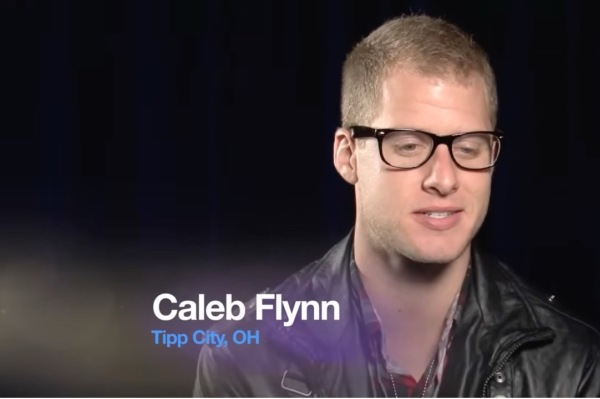On Father's Day, reflecting on faith in the story of Abraham and Isaac

When our son Jeremy was just a kid, he often set himself up in the living room and built Lego gas stations, spaceships, and castles. Our living room, where he held sway, godlike over his creation, had six floor-to-ceiling windows, which he faced, looking out over a sea of cedars. This meant Jeremy had his back to me, as he sat, head bowed, searching, digging, hunting for just the right part — as I stood silently in the doorway behind him.
I watched for as long as I could, until he sensed me, turned around, and invited me to join him (which I invariably did). As I watched Jeremy from behind, I noticed especially his ears — how the sun shone through them. With a turn to the left, his right ear shone. With a turn to the right, his left ear luminesced. Usually, he looked straight ahead so that both ears filtered the bright light that pierced our windows.
Jeremy's small ears were, I reflected, fragile. They seemed paper-thin, sheath-like, sheer. Not flimsy. Not delicate. Fragile.
At least that’s what I sensed as I watched my small son from behind. Here was a boy, inhabiting a Lego fantasy soon to crumble in the face of hostile schoolyards and fierce little league competition and a bevy of too-talented and well-behaved girls.
Fragile.
I am reminded on this Father's Day of the story of Abraham and Isaac. There is so much to be said about the story of Abraham and Isaac in the biblical book of Genesis 22. This is the story Jews call the aqedah, where Abraham binds and nearly sacrifices his son, Isaac.
Yes, there is much to be said about this story. But the one word that comes to mind is fragile.
Not flimsy — Isaac and Abraham are resolute, both of them, rising early, walking for days, and hiking up a mountain.
Not delicate — there is nothing delicate about carrying an armful of wood up a mountain.
But fragile
Why fragile? In part because everything is about to break apart, as a father lifts the knife to his son.
- From now on, we will always wonder about Abraham. We'll never see him in the same way again, never see Abraham as a benign refugee fortunate enough to survive the long trek from Haran. How can he take this trek up the mountain?
- From now on, we will always wonder about Isaac. How can he mount the altar with so many questions left floating in the air?
- From now on, we will always wonder about God. How can God demand this of a parent?
The whole fragile scenario will shatter. Everything to this point in Abraham’s life — the bold exit from his homeland, the lies about Sarah as his sister, the divine promises, the circumcision, the laughably late pregnancy — everything pales in comparison with the glint of the knife, which pierces the fledgling faith we’ve come to embrace in the 21 chapters that have led us to this agonizing point.
Fragile, too, because we see the way I saw my young son: from behind. We stand at the foot of the mountain with the servant boys and watch as they rise. “So, the two of them walked on together.”
Twice the story says this.
Twice they leave us, the two of them, together.
Twice we have to let them go.
Watching them go, together, suggests, to me at least, all of the fragility I can stand.
- Knowing we give them up to a fate that will change both of them, together. Can this fragile father-son relationship ever again be mended?
- Knowing we give them up to a God who demands death despite, at the last moment, intervention and rescue. Can our fragile faith live with this sort of God?
- Knowing I must give my son up to a world that will crush his small bliss, tamp his dreams, steal his childhood. Can my fragile heart bear to stand and watch the slow burn of youth?
I read this story, the way I watched my son — from behind. And I ache with a certain sadness over how fragile faith can be, as I watch the two of them walk on, together.
Jack Levison (PhD, Duke University; MA, Cambridge University; BA, Wheaton College) is an internationally acclaimed scholar and expert on the Holy Spirit. He is the author of Seven Secrets of the Spirit-Filled Life. Levison is the W.J.A. Power Professor of Old Testament Interpretation and Biblical Hebrew at Southern Methodist University Perkins School of Theology.





















